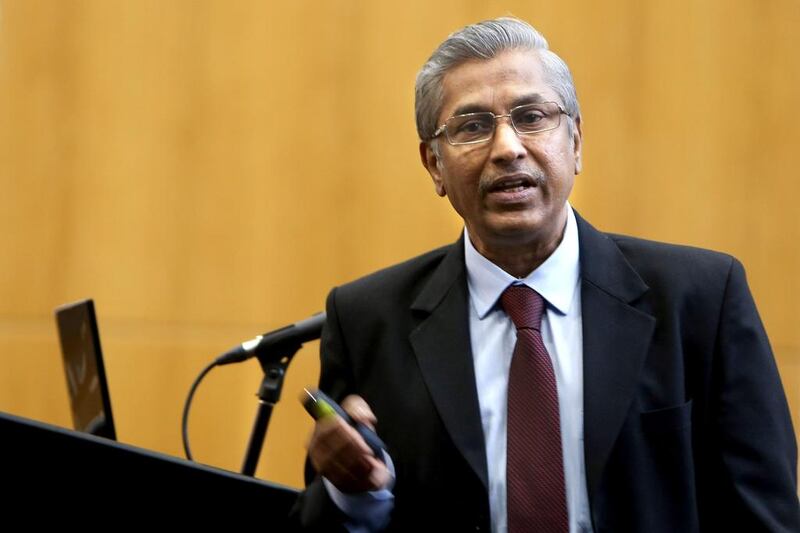Demand for Fujairah’s oil storage capacity is rising amid crude stockpiling on lower prices, traders said.
Fujairah offers various oil bunkering and storage services, with total storage capacity expected to increase to 8.67 million cubic metres (cbm) by the end of the year from the current 6.72 million cbm, according to estimates from the UAE-based bunker supplier and oil trader Gulf Petrochem.
Previously stated figures from Fujairah government officials included an expansion of the facilities to around 12 million cbm by 2017, but the terminal operator GPS Chemoil said that figure is likely to be closer to 10.2 million cbm as a result of the current commodities market.
Brent crude prices have fallen more than 50 per cent from their peaks last summer to trade under US$50 a barrel. The lower oil price has encouraged more stockpiling of crude as the market is in “contango”, with future prices higher than spot rates.
The contango market has resulted in traders in Europe and Asia filling as much available storage space as possible for crude oil and products despite a 30 per cent capacity increase over the past five years. Vessels with an estimated 40 million barrels of capacity have also been booked to store oil at sea, Reuters reported this month. Product is also being shipped to the United States, where there is extra land storage capacity.
Three new storage projects were expected to come online in Fujairah last year, including from Greek bunker supplier Aegean Marine Petroleum, Shanghai’s Fujairah Oil Terminal FTZ and Infrastructure Leasing & Financial Services (IL&FS) of India. These projects would have added storage capacity of 1.95 million cbm, but start-up dates were pushed back to this year.
Projects usually take two to three years to complete, said Tarun Arora, general manager of GPS Chemoil.
“How long this contango market will last is anyone’s guess,” he said.
The oil trader Gunvor told Reuters last week that “there is some potential for that contango to steepen”, indicating that it will become even more profitable to stockpile crude.
Fujairah’s location south of the Strait of Hormuz has attracted a slew of investment into its port storage facilities aimed at turning the port city into one of the world’s great oil trading hubs, such as Singapore. A 380-kilometre pipeline connecting oil production at Habshan allows Gulf crude exports to bypass the waterway Iran threatened to close in 2012 in retaliation against sanctions.
The port is also the terminus for Qatari natural gas via Dolphin Energy’s pipeline from Taweelah. In addition to the storage expansion, there are also plans to build more refining capacity, and petrochemical and liquefied natural gas re-gasification facilities.
Occupancy at Fujairah’s terminals in 2014 averaged about 70 per cent of capacity and was rising at the end of last year, said Gulf Petrochem’s global head of terminals, Muthukrishnan Prabakaran.
According to Mr Prabakaran, the significant new storage capacity being marketed by IL&FS, which is expected to start taking oil into its tanks from February or March, totals 650,000 cbm, which makes up a significant portion of the new capacity due to be added at the Indian Ocean facility this year.
Demand for storage is also expected to rise once a planned refinery is operational, according to Mr Arora.
The International Petroleum Investment Company (Ipic) refinery with processing capacity of around 200,000 barrels per day (bpd) is expected to be online in 2016.
“That [refinery] is the main driver for business in Fujairah so if that gets delayed, all of our projects get delayed,” said Mr Arora.
The UAE Energy Minister Suhail Al Mazrouei said on Monday that despite the current commodities market volatility expansion plans needed to push forward at Fujairah.
“We are at a very interesting time, [but] investments in infrastructure and upgrades have to continue,” he said at the Tank Storage Middle East conference in the capital. “The UAE is a major oil producer and our investments are intact to make sure that our stand as a major producer stays, and that’s why we’ll continue to upgrade our facilities.”
lgraves@thenational.ae
Follow The National's Business section on Twitter





